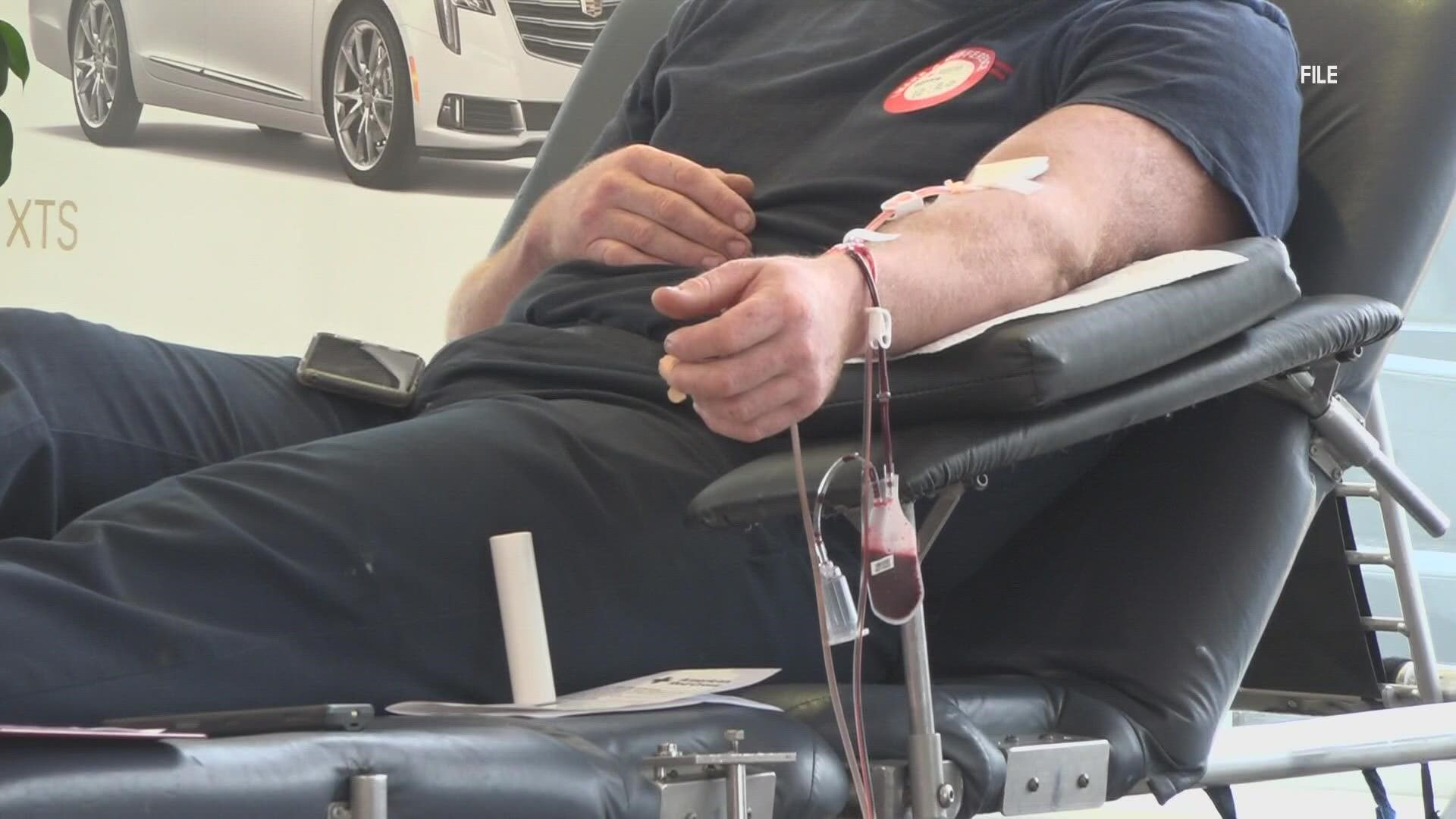BANGOR, Maine — The U.S. is facing a national blood crisis that the American Red Cross calls the worst in over a decade. Despite the need for donations, gay and bisexual men face restrictions on their ability to give blood.
According to the U.S. Food and Drug Administration policy, in order to donate blood, a man who has sex with another man must remain celibate for three months.
"That's really damaging, stigmatizing, and really makes me feel like I cannot do anything to contribute meaningfully to my community in the ways we need right now in healthcare," said Orion Tucker, the manager of sexual health and wellness services at Health Equity Alliance in Bangor. “I have O-positive blood, which is a universal type that is accessible to anybody who may be in need, but they don't want my blood because I have sex with men. And it’s really important to note that I’m in a monogamous and committed relationship with this individual I’m with. ”
Restrictions on blood donations from gay and bisexual men date back to the 1980s. The FDA first imposed a total ban on gay and bisexual men donating blood during the early years of the HIV/AIDS epidemic.
“Honestly, I think it’s outrageous and antiquated,” said Maine Democratic Rep. Chellie Pingree about the current FDA restrictions. “Why are we using this very personal sort of measure of determining whether or not someone is eligible to give blood when in fact we test the blood supply before it’s used anyway. We’re just not using good science.”
NEWS CENTER Maine reached out to other members of Maine's Congressional delegation for comment on the FDA's blood donation restrictions.
In an email, Republican U.S. Sen. Susan Collins said, "While the deferral period for donations is a decision for medical professionals, it is important that FDA and HHS continue to review their policies to ensure that as many willing donors as possible are able to give and so that people who want to help are not stigmatized.”
The American Red Cross of Northern New England denied multiple interview requests from NEWS CENTER Maine to discuss the restrictions on gay and bisexual men.
On the non-profit's website, the American Red Cross says it "... recognizes the hurt this policy has caused to many in the LGBTQ+ community and believes blood donation eligibility should not be determined by methods that are based upon sexual orientation. We are committed to working with partners toward achieving this goal."
Tucker says blood donation restrictions like these are among the many barriers the LGBTQ+ community faces every day.
“It reinforces not only to the individuals but the providers that these folks are folks engaging in these practices are othered in our community, which is causing more problems,” Tucker added.

